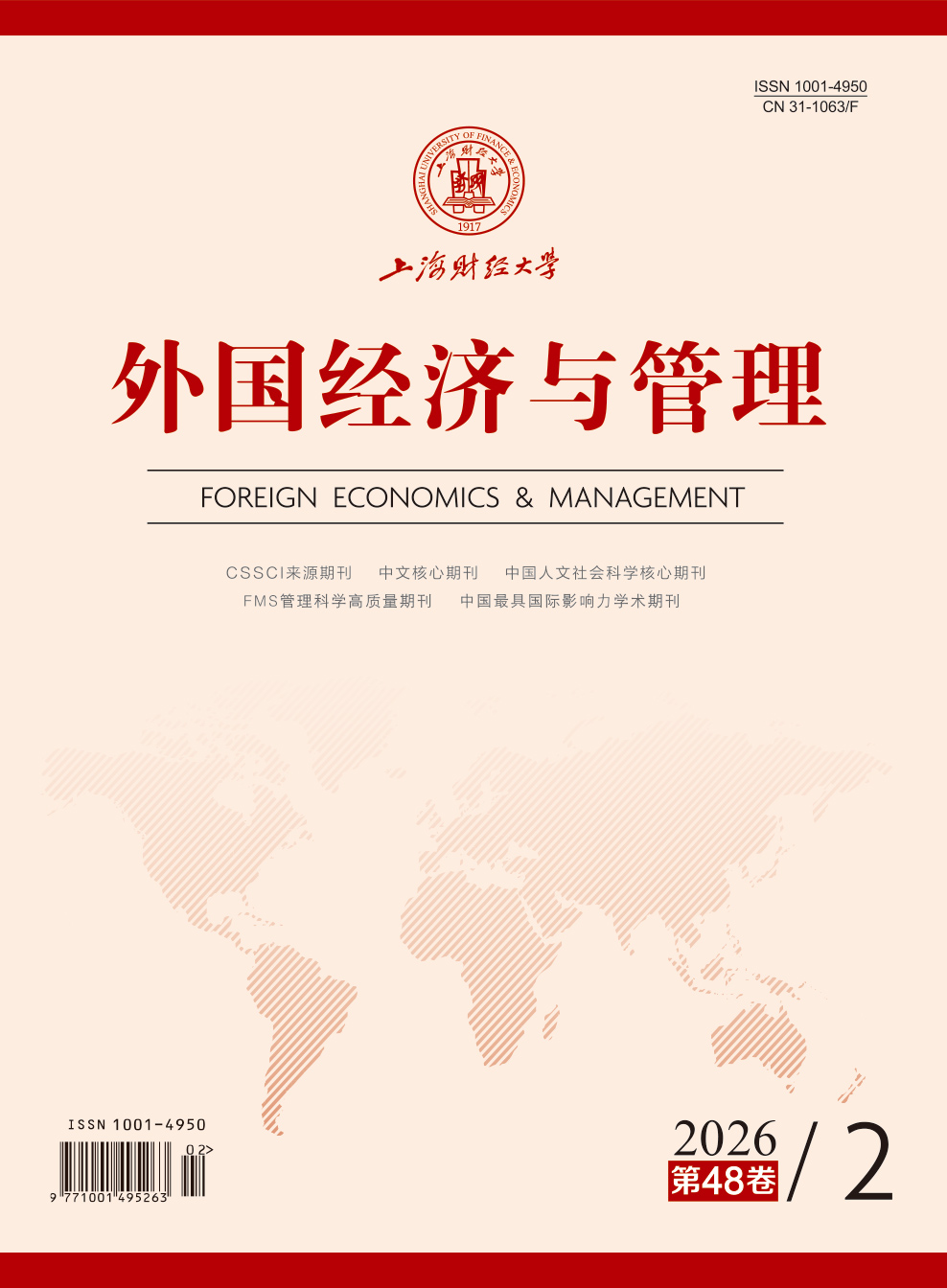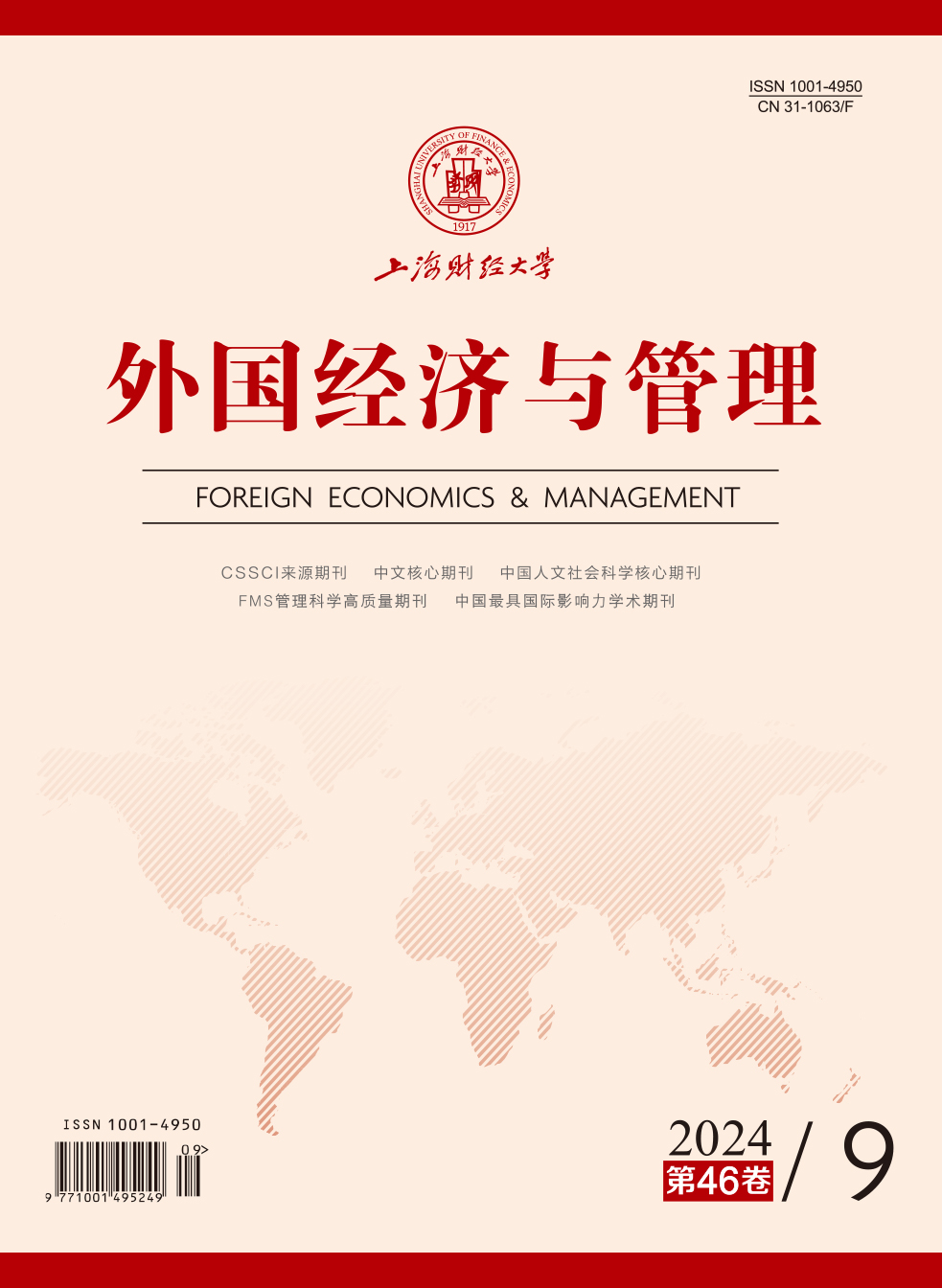日益激烈的研发竞争使得研发团队领导容错和团队自省变得愈发必要和普遍。为厘清领导容错与团队自省匹配对研发团队创新绩效的影响机理,基于社会信息加工理论,从错误管理视角出发,将“容错—自省”划分为“高高”“高低”“低高”“低低”四种组合构型,并探讨其对创新绩效的作用机制。采用多项式回归和响应面分析、层次回归分析对182份有效团队问卷数据进行检验,研究结果表明:第一,在研发团队“容错—自省”匹配的构型中,处于“高容错—高自省”组合构型的团队从错误中学习的效果要优于处于“低容错—低自省”匹配状态下的团队;领导容错和团队自省强度的一致性越高,越有利于团队从错误中学习;第二,团队错误中学习在“容错—自省”匹配和团队创新绩效的关系中起中介作用;第三,任务复杂性调节了“容错—自省”匹配和团队错误中学习之间的关系,高任务复杂性强化了“容错—自省”匹配对团队错误中学习的正向作用。
领导容错—团队自省匹配对研发团队创新绩效的影响研究
摘要
参考文献
2 奉小斌. 研发团队跨界行为对创新绩效的影响——任务复杂性的调节作用[J]. 研究与发展管理, 2012, 24(3): 56-65.
3 耿紫珍, 王艳粉, 肖蒙蒙, 等. 差错能催生团队突破性创造力吗?——基于跨层次交互模型的fsQCA分析[J]. 研究与发展管理, 2022, 34(3): 147-161.
7 姜秀珍, 顾琴轩, 王莉红, 等. 错误中学习与研发团队创新: 基于人力资本与社会资本视角[J]. 管理世界, 2011, (12): 178-179,181.
9 李柏洲, 曾经纬. 知识搜寻与吸收能力契合对企业创新绩效的影响——知识整合的中介作用[J]. 科研管理, 2021, 42(6): 120-127.
11 庞立君, 任颋, 王向阳. CEO变革型领导与企业绩效关系研究——失败学习的非线性中介作用[J]. 研究与发展管理, 2019, 31(4): 114-126.
14 王雁飞, 林珊燕, 郑立勋, 等. 社会信息加工视角下伦理型领导对员工创新行为的双刃剑影响效应研究[J]. 管理学报, 2022, 19(7): 1006-1015.
16 闫佳祺, 罗瑾琏. 科研团队双元领导与创新绩效[J]. 科学学研究, 2018, 36(11): 2103-2112.
19 叶存军, 何斌, 孙旭, 等. 包容型领导在创新领域的双刃剑效应——违反规范可接受感知的中介和主动性人格的调节[J]. 技术经济, 2020, 39(11): 136-146.
23 韵江, 暴莹. 风险情境下战略变革过程中试错学习机制的双案例研究[J]. 管理世界, 2023, 39(2): 141-170.
24 张凯丽, 唐宁玉. 组织中的诚实行为——员工差错承认的前因与结果探究[J]. 南开管理评论, 2016, 19(6): 36-48.
26 赵斌, 刘桂霞, 宇卫昕, 等. 差错管理氛围、工作复杂性对员工创新行为影响的跨层次研究[J]. 预测, 2017, 36(5): 15-23.
27 赵富强, 陈耘, 向蝴蝶. 多元包容性人力资源实践对员工创新行为的影响研究——工作繁荣和共享型领导的作用[J]. 科研管理, 2022, 43(8): 192-200.
29 朱金强, 徐世勇, 张丽华. “宽猛相济”促创新——基于阴阳观的视角[J]. 南开管理评论, 2018, 21(5): 200-212.
30 Adams G S, Zou X, Inesi M E, et al. Forgiveness is not always divine: When expressing forgiveness makes others avoid you[J]. Organizational Behavior and Human Decision Processes, 2015, 126: 130-141. DOI:10.1016/j.obhdp.2014.10.003
31 Baumard P, Starbuck W H. Learning from failures: Why it may not happen[J]. Long Range Planning, 2005, 38(3): 281-298. DOI:10.1016/j.lrp.2005.03.004
32 Carmeli A, Schaubroeck J. Organisational crisis-preparedness: The importance of learning from failures[J]. Long Range Planning, 2008, 41(2): 177-196. DOI:10.1016/j.lrp.2008.01.001
33 Danneels E, Vestal A. Normalizing vs. analyzing: Drawing the lessons from failure to enhance firm innovativeness[J]. Journal of Business Venturing, 2020, 35(1): 105903. DOI:10.1016/j.jbusvent.2018.10.001
34 Domínguez-Escrig E, Mallén Broch F F, Chiva Gómez R, et al. Improving performance through leaders’ forgiveness: The mediating role of radical innovation[J]. Personnel Review, 2022, 51(1): 4-20. DOI:10.1108/PR-12-2017-0396
35 Dreu C K W D. Team innovation and team effectiveness: The importance of minority dissent and reflexivity[J]. European Journal of Work and Organizational Psychology, 2002, 11(3): 285-298. DOI:10.1080/13594320244000175
36 Edwards J R, Cable D M. The value of value congruence[J]. Journal of Applied Psychology, 2009, 94(3): 654-677. DOI:10.1037/a0014891
37 Ellis S, Mendel R, Nir M. Learning from successful and failed experience: The moderating role of kind of after-event review[J]. Journal of Applied Psychology, 2006, 91(3): 669-680. DOI:10.1037/0021-9010.91.3.669
38 Frese M, Keith N. Action errors, error management, and learning in organizations[J]. Annual Review of Psychology, 2015, 66: 661-687. DOI:10.1146/annurev-psych-010814-015205
39 Gu Q X, Wang G G, Wang L H. Social capital and innovation in R&D teams: The mediating roles of psychological safety and learning from mistakes[J]. R& D Management, 2013, 43(2): 89-102.
40 Guchait P, Lanza-Abbott J, Madera J M, et al. Should organizations be forgiving or unforgiving? A two-study replication of how forgiveness climate in hospitality organizations drives employee attitudes and behaviors[J]. Cornell Hospitality Quarterly, 2016, 57(4): 379-395. DOI:10.1177/1938965516633308
41 Horvath D, Klamar A, Keith N, et al. Are all errors created equal? Testing the effect of error characteristics on learning from errors in three countries[J]. European Journal of Work and Organizational Psychology, 2021, 30(1): 110-124. DOI:10.1080/1359432X.2020.1839420
42 Islam Z, Doshi J A, Mahtab H, et al. Team learning, top management support and new product development success[J]. International Journal of Managing Projects in Business, 2009, 2(2): 238-260. DOI:10.1108/17538370910949284
43 Kamphuis W, Gaillard A W K, Vogelaar A L W. The effects of physical threat on team processes during complex task performance[J]. Small Group Research, 2011, 42(6): 700-729. DOI:10.1177/1046496411407522
44 Lyubovnikova J, Legood A, Turner N, et al. How authentic leadership influences team performance: The mediating role of team reflexivity[J]. Journal of Business Ethics, 2017, 141(1): 59-70. DOI:10.1007/s10551-015-2692-3
45 Ma Q J, Tang N Y. Too much of a good thing: The curvilinear relation between inclusive leadership and team innovative behaviors[J]. Asia Pacific Journal of Management, 2023, 40(3): 929-952. DOI:10.1007/s10490-022-09862-5
46 Mansoor A, Farrukh M, Wu Y H, et al. Does inclusive leadership incite innovative work behavior?[J]. Human Systems Management, 2021, 40(1): 93-102. DOI:10.3233/HSM-200972
47 Ohlsson S. Learning from performance errors[J]. Psychological Review, 1996, 103(2): 241-262. DOI:10.1037/0033-295X.103.2.241
48 Oppenheimer D M, Kelso E. Information processing as a paradigm for decision making[J]. Annual Review of Psychology, 2015, 66: 277-294. DOI:10.1146/annurev-psych-010814-015148
49 Salancik G R, Pfeffer J. A social information processing approach to job attitudes and task design[J]. Administrative Science Quarterly, 1978, 23(2): 224-253. DOI:10.2307/2392563
50 Schippers M C, Edmondson A C, West M A. Team reflexivity as an antidote to team information-processing failures[J]. Small Group Research, 2014, 45(6): 731-769. DOI:10.1177/1046496414553473
51 Schippers M C, Homan A C, van Knippenberg D. To reflect or not to reflect: Prior team performance as a boundary condition of the effects of reflexivity on learning and final team performance[J]. Journal of Organizational Behavior, 2013, 34(1): 6-23. DOI:10.1002/job.1784
52 Schippers M C, West M A, Dawson J F. Team reflexivity and innovation: The moderating role of team context[J]. Journal of Management, 2015, 41(3): 769-788. DOI:10.1177/0149206312441210
53 Sin H P, Nahrgang J D, Morgeson F P. Understanding why they don’t see eye to eye: An examination of leader–member exchange (LMX) agreement[J]. Journal of Applied Psychology, 2009, 94(4): 1048-1057. DOI:10.1037/a0014827
54 Stock R M. Interorganizational teams as boundary spanners between supplier and customer companies[J]. Journal of the Academy of Marketing Science, 2006, 34(4): 588-599. DOI:10.1177/0092070306288765
55 Tang N Y, Jiang Y, Chen C Y, et al. Inclusion and inclusion management in the Chinese context: An exploratory study[J]. The International Journal of Human Resource Management, 2015, 26(6): 856-874. DOI:10.1080/09585192.2014.985326
56 Tjosvold D, Yu Z Y, Hui C. Team learning from mistakes: The contribution of cooperative goals and problem-solving[J]. Journal of Management Studies, 2004, 41(7): 1223-1245. DOI:10.1111/j.1467-6486.2004.00473.x
57 van Dyck C, Frese M, Baer M, et al. Organizational error management culture and its impact on performance: A two-study replication[J]. Journal of Applied Psychology, 2005, 90(6): 1228-1240. DOI:10.1037/0021-9010.90.6.1228
58 Weinzimmer L G, Esken C A. Learning from mistakes: How mistake tolerance positively affects organizational learning and performance[J]. The Journal of Applied Behavioral Science, 2017, 53(3): 322-348. DOI:10.1177/0021886316688658
59 West M A. Reflexivity and work group effectiveness: A conceptual integration[M]. Chichester: John Wiley & Sons, 1996.
60 Yam K C, Christian M S, Wei W, et al. The mixed blessing of leader sense of humor: Examining costs and benefits[J]. Academy of Management Journal, 2018, 61(1): 348-369. DOI:10.5465/amj.2015.1088
61 Yan Q, Bligh M C, Kohles J C. Absence makes the errors go longer: How leaders inhibit learning from errors[J]. Zeitschrift für Psychologie, 2014, 222(4): 233-245. DOI:10.1027/2151-2604/a000190
62 Zhao B. Learning from errors: The role of context, emotion, and personality[J]. Journal of organizational Behavior, 2011, 32(3): 435-463. DOI:10.1002/job.696
引用本文
张超, 罗瑾琏, 王象路, 等. 领导容错—团队自省匹配对研发团队创新绩效的影响研究[J]. 外国经济与管理, 2024, 46(9): 106-120.
导出参考文献,格式为:





 4465
4465  6351
6351

